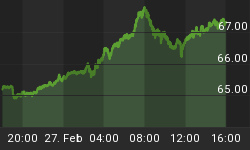Former Treasury Secretary Hank Paulson weighed in on the budget and debt ceiling gridlock in Washington and offered a solution last week by saying, "I hate the whole concept of a debt ceiling". He also indicated that putting a legal limit on our nation's borrowing authority is a "flaw in the system". In other words, if we just did away with the strictures of a debt limit our problems would go away. Unfortunately, this view is shared by most in our government.
As usual, the majority of those in D.C., regardless of their party affiliation, have it exactly backwards. The problem isn't that we have a law which caps the total amount of our nation's public obligations. The real issue is that our leaders consistently pass spending bills which breach our legal borrowing limit. In fact, D.C. has raised the debt ceiling 74 times since 1962 alone.
The majority of politicians in both houses of congress believe that not raising the debt ceiling would impugn the full faith and credit of U.S. Treasury Debt. In sharp contrast, it is our habit of raising the debt limit without getting our deficits and entitlement obligations under control that poses the most threat to Treasury prices.
Of course, no sane person advocates defaulting on our sovereign obligations; but that is exactly what we are doing right now anyway through the Fed's massive monetization of bonds. And if we do not finally address our addiction to debt, our default level will increase dramatically as real interest rates plummet. Therefore, what a few rational members in government are trying to accomplish is preventing the inevitable spike in nominal interest rates and an even greater surge in inflation stemming from the loss of confidence in our nation's ability to service our debt through taxation. By adhering to the current $16.7 trillion debt limit the U.S. can greatly reduce the need for debt monetization on the part of our central bank.
It is a fact that the current level of revenue is not enough to pay down the amount of total debt outstanding because our annual deficit for fiscal 2013 will be $750 billion. President Obama likes to claim he cut our deficits in half from the $1.4 trillion deficit incurred during 2009. However, this distorts the truth because the deficit for 2008, the year before his first term, was $458 billion, and the year before that the deficit was just $160 billion. So, we are growing the debt because we are increasing the deficits and, most importantly, we are still growing the debt as a percentage of GDP.
These debt and deficits should soar in the coming years to an even greater degree because the premium support provision in the Affordable Care Act (ACA) is another huge entitlement that will provide a government subsidy for millions of Americans that cannot afford health care insurance. In fact, the Congressional Budget Office recently raised the cost for the ACA to $2.6 trillion over the first 10-year horizon. The ACA is the law of the land; but the debt ceiling is as well. Washington cannot claim that some laws are malleable and others which are not.
Nevertheless, it is our addictions to debt and inflation that will eventually collapse Treasury prices, not having a legal borrowing limit on our nation's debt. It is a travesty that many in D.C. are claiming the failure to raise the debt ceiling will lead to Treasury default. Quite the contrast, it would be tantamount to adopting a balanced budget amendment, which would serve to dramatically boost confidence in Treasury ownership.
The tremendous amount of outstanding debt, unchecked deficits and intractable entitlement program spending virtually guarantees that the Fed will have to increase its monetization of Treasuries at an even greater level than the incredible trillion dollar annual pace. This unfortunately means that inflation and our addiction to asset bubbles will be growing in ever-increasing fashion over time.















